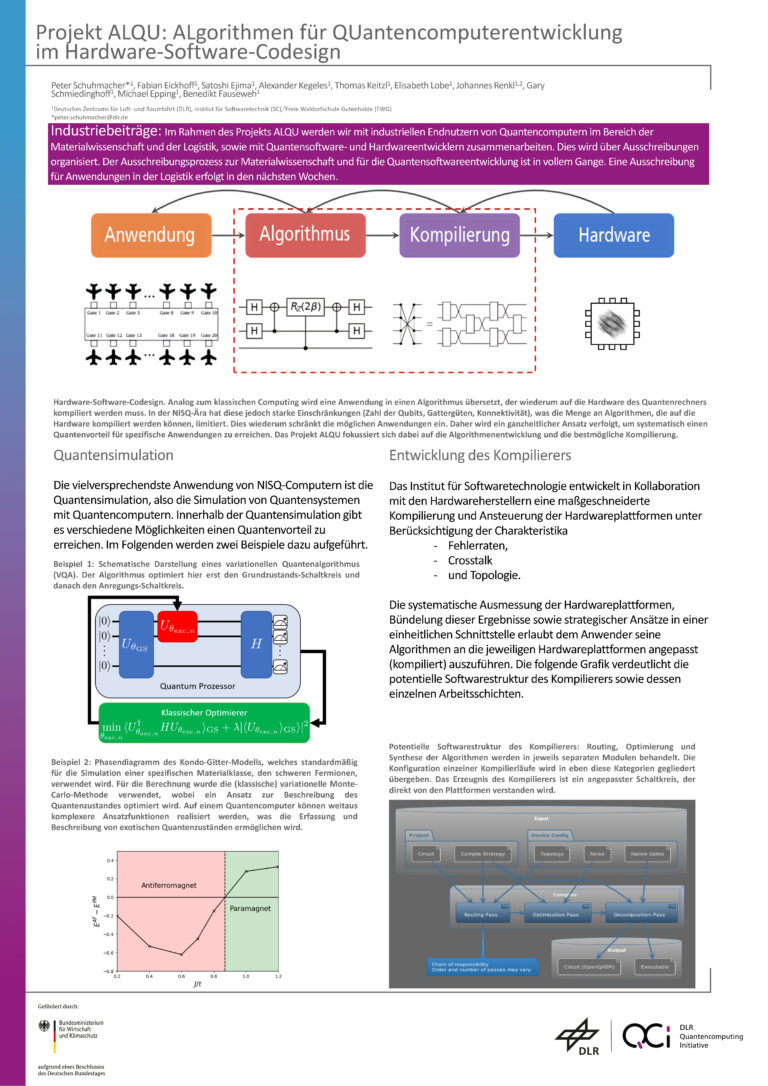Objective
We are developing customised compilation strategies for the DLR QCI’s quantum computers and customised quantum algorithms for difficult, industry-relevant computational problems.
Through our research and development work, we support the quantum computing ecosystem in the development of innovative products and applications. In doing so, we focus on two particularly important problems in quantum software development – the efficient compilation of circuits on quantum computing hardware and the development of customised quantum algorithms for industrial use. We implement and evaluate our solutions for QCI quantum computers to take a step towards quantum advantage. In doing so, we work closely with quantum hardware manufacturers and industrial end users.
Motivation
For current quantum computers of the Noisy Intermediate-Scale Quantum (NISQ) era, no algorithms are yet known that have a guaranteed runtime improvement compared to classical computers. Although many of these algorithms do not require quantum error correction, precise knowledge of the errors is essential for achieving the quantum advantage. Therefore, implementing a useful application on a quantum computer faster than on a classical computer requires close cooperation in hardware and software development. In this way, the key figures and error models of the real machines can be incorporated into the algorithm development and, at the same time, the hardware development can implement the goals that are most promising in terms of algorithms and possible applications. This approach is called hardware-software codesign. In addition, a perspective orientation towards possible end users is essential to achieve the common goal – to solve a useful application faster on a quantum computer than on a classical computer. This is why our project bridges the gap between fundamental research and potential end users.
Challenge
It is not easy to find algorithms for error-prone quantum computers that promise a quantum advantage despite being error-prone. This is currently a key challenge. Above all, identifying practical tasks that are possible with current quantum-accelerated methods and their translation into a problem that can be solved by a quantum computer requires some knowledge and expertise. Due to the volatile development situation in the hardware sector, a high level of adaptability is also always necessary. This is why we must thoroughly investigate the applications and algorithms for possible uses. At the same time, we must not lose sight of alternative developments. It must always be clear that simply reproducing an application on a quantum computer Is not enough. Rather, the goal must always be to solve the application faster or better than with the best algorithms on conventional hardware.





